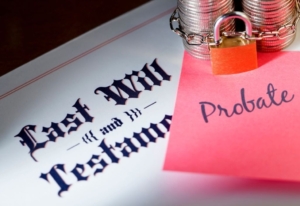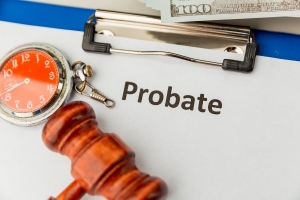
If you recently had a close loved one pass away, you will likely have many questions regarding the administration of their estate. Often, the first question is where to open their probate estate. However, before getting to the answer, a little background will be helpful.
Significantly, not all assets must go through the Florida probate process. When it comes to determining whether an asset is probate or non-probate asset, consider the type of ownership rather than the type of asset. For example, the following assets are non-probate assets:
- Real estate held as joint tenants;
- Retirement plans, IRAs, and annuities with a payable-on-death designation;
- Jointly held checking and savings accounts; and
- Investment accounts and other brokerage accounts with beneficiary designations.
Those assets that do not fit into any of the above categories must go through probate, unless the deceased took additional steps to ensure his assets avoided the probate process. More on this later. However, assuming that was not the case, most people own at least some property in their own name. Thus, probate is rarely entirely avoided in the absence of a comprehensive estate plan.
As a general rule, probate must be filed in the county where the deceased lived before they died. However, if the deceased owned certain types of property in another county, a probate estate may need to be filed in that county as well.
Determining where to open a probate estate can be complicated, but that is not always the case. For example, if your loved one lived in Duval County, and all their property was located within the county, then the probate estate must be opened in Duval County. Of course, many Florida residents only live in the state part-time or maintain another home elsewhere in the country. Situations such as this one can complicate the process.
When thinking about where to open a probate estate, it is important to understand the difference between tangible and intangible property. Generally, tangible assets are those that have a physical presence, such as real estate, artwork, boats, RVs, and other motor vehicles. On the other hand, intangible assets are those assets that exist based on a right conferred by law. For example, intellectual property, such as copyrights and trademarks, are intangible assets. Money in bank accounts is also most often an intangible asset.
In general, if someone’s estate only contains intangible assets, the probate estate can be opened in the county where they died. For instance, assume George spent five months a year in Florida. While there, he rents a condo. Because the condo is centrally located, George does not need a car. For the remainder of the year, George lives in New Jersey, where he owns a home, several cars, and a few rental properties. The vast majority of George’s personal property is located in New Jersey. In this case, it is likely that George’s loved ones would not need to open a probate estate in Florida. This would remain the case, even if George kept some of his movable tangible personal property, such as artwork, in Florida. However, if George spent his time in Florida living in a home that he owned, his surviving loved ones would likely need to open a probate estate in Florida as well.
One exception to this is if the deceased’s primary residence was in a different county in the same state. So, to use George’s example again, this time assume George spent most of his time living in Jacksonville and the other portion of the year visiting family in Miami. Regardless of where George died, or the assets he owned in Miami, George’s loved ones would likely open the probate estate in Jacksonville.
Avoiding the Hassle of Probate

When opening a Florida living trust, it is essential to choose a reliable successor trustee. This is someone who will take over the trust and distribute the assets upon the creator’s death. A successor trustee can also step in if the creator of the trust becomes unexpectedly incapacitated. If a living trust is properly set up (and assets are appropriately transferred into the trust), the successor trustee will be able to automatically transfer those assets to the named beneficiaries without needing to open a probate estate.
Contact a Knowledgeable Planning Lawyer for Immediate Assistance
If you do not yet have a will, or have a will but are worried about the complexities that the probate process may raise for loved ones after you pass, contact the Florida planning attorney at Beller Law, P.L. Our dedicated team of attorney has over three decades of hands-on experience helping clients meet all their estate planning needs. We work with individuals and families from all backgrounds, with varying net worth, to help them ensure that future generations are adequately cared for. With our help, you can reduce the burdens of the estate administration process, reduce estate tax exposure, limit the assets subject to probate, all while ensuring that you have the assets you need to live comfortably. To learn more and schedule a consultation with one of our compassionate planning lawyer, call us or contact us through our online form.
